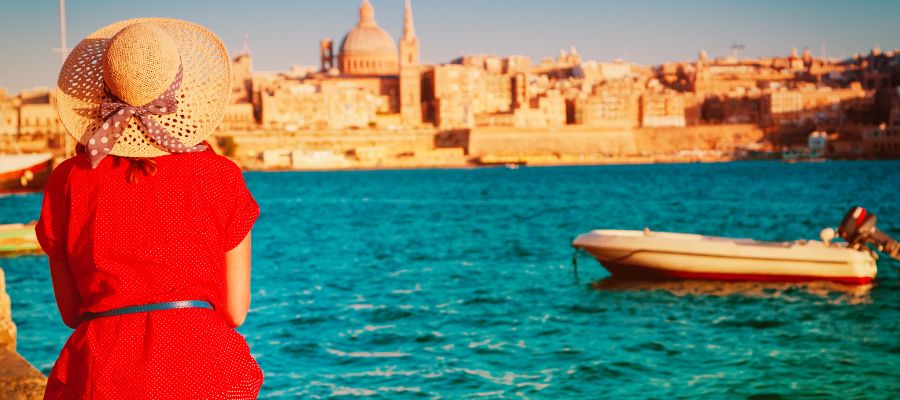When expats think about possible destinations for settling down and retiring, several factors come into play. Apart from Malta’s attractive Mediterranean climate, English-speaking locals and great connections to other European cities, the financial advantages associated with living here should also be considered.
Expatriate life in Malta
By Jozef Spiteri
This article is published on: 31st August 2023
When looking at Malta, apart from the obvious desirable features of the island, there are various visa programs available, offering a range of tax-efficient solutions specifically aimed at expats.
The following are just some of the options available:
Malta Retirement Programme (MRP)
This program is available to EU and non-EU nationals (including EEA and Swiss nationals) who are not employed and receiving a pension as regular income.
Beneficiaries of the MRP will be granted a special tax status with pension income remitted to Malta taxed at a flat rate of 15%, whilst other income arising in Malta will be taxed at a flat rate of 35%.
This can be very attractive for expat retirees who are paying significantly higher tax rates on their pension incomes in other countries.
Although they cannot be employed as such, those retirees on the MRP can hold non-executive roles on boards of companies based in Malta, and they can also engage in activities related to any institution, foundation or trust of a public nature (for example educational, philanthropic, or research and development work in Malta)
Professional advice should always be sought on suitability to personal circumstances.
Digital Nomad Visa
Many professionals are now working remotely – why not do so from a sunny island in the Mediterranean? This visa is valid for ‘third country’ individuals (non-EU, non-EEA, non-Swiss) who are either partners or employed with a company located outside the country. Consultants advising entities outside Malta are also eligible to apply.
The main requirement is that applicants must be earning a minimum of €2,700 per month.
Applicants who are accepted will also be allowed to bring over spouses and dependent children to live in Malta. These individuals will be able to take advantage of all that Malta has to offer, including hassle free travel to other Schengen countries.
A key advantage of this program is that no tax is payable within its first year. Again, professional advice is recommended.

Citizenship by Investment
This program is targeted at ultra-high net worth individuals who are willing to make a minimum contribution of €600,000 to the national development fund set up by the local government and who have been Maltese resident for 36 months. Another option is also available, requiring a contribution of €750,000 but with a lower residency condition of 12 months. Additionally, applicants must contribute a further €50,000 for each dependent included in their application.
€700,000 will also have to be invested into residential real estate or a rental contract of €16,000 per year will have to be established and maintained for five years. A donation of €10,000 will also have to be made to a registered philanthropic, cultural, sporting, scientific, animal welfare or artistic non-governmental approved organisation/society.
This will lead to citizenship and a Maltese passport after one to three years of residency, which by default also brings European citizenship, enabling these individuals to live, work and study anywhere in the EU.
Malta Permanent Resident Scheme
This program is a straightforward residency by investment program. The processing time for applications is four to six months from the submission of a correct and complete application form. The program is particularly valuable for prospects intending to make Malta their second home.
To be eligible for the MPRP, applicants should:
• be a third country national (non-EU, non-EEA, non-Swiss)
• not hail from sanctioned countries, as announced from time to time by the Community Malta Agency
• not benefit under other pertinent regulations and schemes
• have sufficient financial resources to maintain themselves and their dependants without recourse to the social assistance system of Malta
• show they have capital assets of not less than €500,000, out of which a minimum of €150,000 must be financial assets
• be fit-and-proper individuals and have a clean criminal record
• not pose any potential threat to national security, public policy, public health or public interest
Global Residency Program
The GRP is designed for non-EU, non-EEA or non-Swiss nationals who are not long-term Maltese residents. Individuals applying for the program can work in Malta if they satisfy the necessary conditions to obtain a work permit.
Successful applicants may also have household staff providing services in their qualifying property if all requisite conditions are met.
If you would like to know more about these programs feel free to contact our team in Malta. We can outline the various options and determine suitability to your circumstances. All initial meetings and discussions are free of charge and carry no obligation to proceed.


